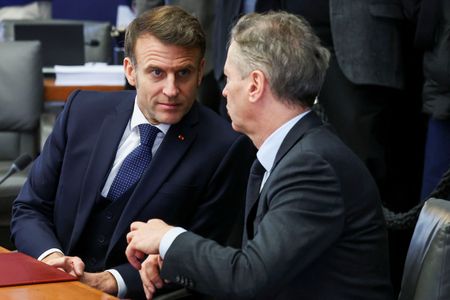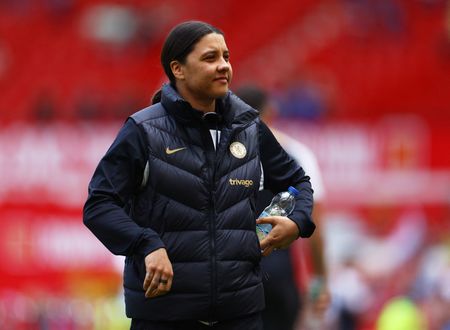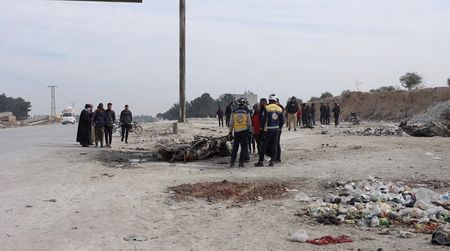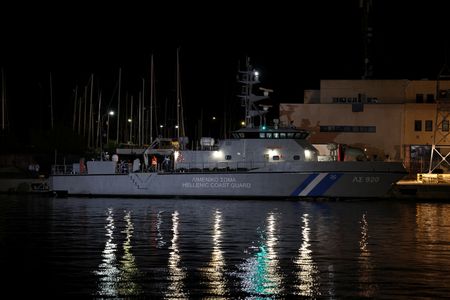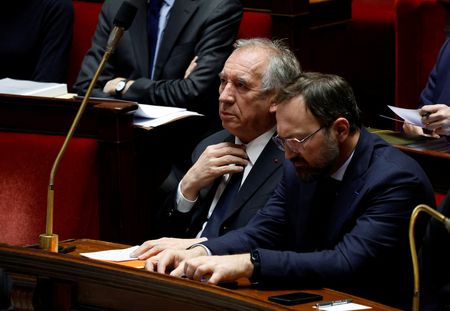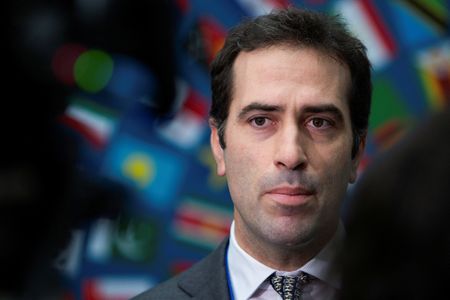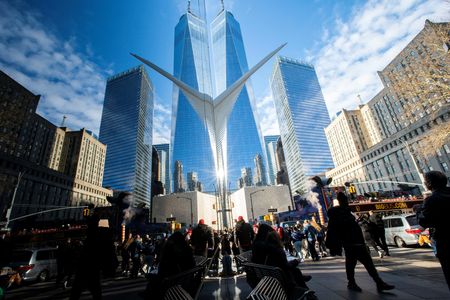By Andrew Gray and Lili Bayer
BRUSSELS (Reuters) – French President Emmanuel Macron said on Monday that Russia’s invasion of Ukraine and the policies of U.S. President Donald Trump were pushing Europe to take more responsibility for its own physical and economic security.
Macron made the comments as he arrived at a gathering of European Union leaders in Brussels to discuss relations with the United States and bolstering Europe’s military defences.
The start of the summit was overshadowed by Trump declaring at the weekend that he will soon impose tariffs on imports from the EU, having just ordered similar measures on goods from Canada, Mexico and China.
Arriving leaders warned Trump against starting a trade war and said the EU would retaliate if he did so.
Macron said Trump’s policies were one of several factors pushing the EU to become less dependent on others.
“The COVID epidemic and the Russian aggression in Ukraine were moments of awakening,” Macron told reporters.
“What’s happening at this very moment today in Ukraine, what’s happening also now with the choices, the declarations of the new American administration of President Trump pushes the Europeans to be more united, more active to respond on subjects of their collective security,” he said.
This meant boosting Europe’s defence industry and buying more European arms, Macron said.
His comments reflected his vision of European “strategic autonomy”. But some other leaders stressed they wanted to continue a strong security partnership with the U.S. and other NATO alliance members and keep buying U.S. arms.
“I will advocate against imposing restrictions on arms purchases. Security is our top priority. Relations with the U.S.A., Canada, and Norway in terms of defence must remain at the forefront,” Polish Prime Minister Donald Tusk said.
‘LAZY’ DEFENCE
New Belgian Prime Minister Bart De Wever said Europe had been “a bit lazy on the topic of defence” but Russian President Vladimir Putin “has woken us up”.
“We need to keep the relationship with the United States going,” he said. “Reinforcing European defence…in the partnership of the transatlantic alliance is the way to go.”
Antonio Costa, the president of the European Council of EU leaders, billed the one-day gathering as a “retreat” devoted to defence policy rather than a formal summit, aiming for an open discussion without any official declaration or decisions.
NATO Secretary General Mark Rutte and British Prime Minister Keir Starmer are also on the guest list.
The EU’s 27 national leaders are expected to discuss what military capabilities they need, how they could be funded and how they might cooperate more through joint projects.
The funding discussion will be especially tough, according to diplomats, as many European countries have little room in their public finances for big spending hikes.
Some countries, such as the Baltic states and France, advocate joint EU borrowing to spend on defence. But Germany and the Netherlands are opposed.
One compromise could be to borrow to finance loans rather than grants for defence projects, according to some diplomats.
European countries have ramped up defence spending in recent years, particularly since Russia’s 2022 invasion of Ukraine, which brought war to the EU’s borders. But leaders on both sides of the Atlantic say Europe needs to spend even more.
Trump has said NATO’s European members should spend 5% of GDP on defence – a figure no member of the alliance including the United States currently reaches.
Last year, EU countries spent an average of 1.9% of GDP on defence or about 326 billion euros ($334.48 billion) – a 30% increase from 2021, according to EU estimates.
(Additional reporting by Bart H. Meijer, Charlotte Van Campenhout, Geert De Clercq and Sudip Kar-Gupta; Writing by Andrew Gray; Editing by Will Dunham and Angus MacSwan)

